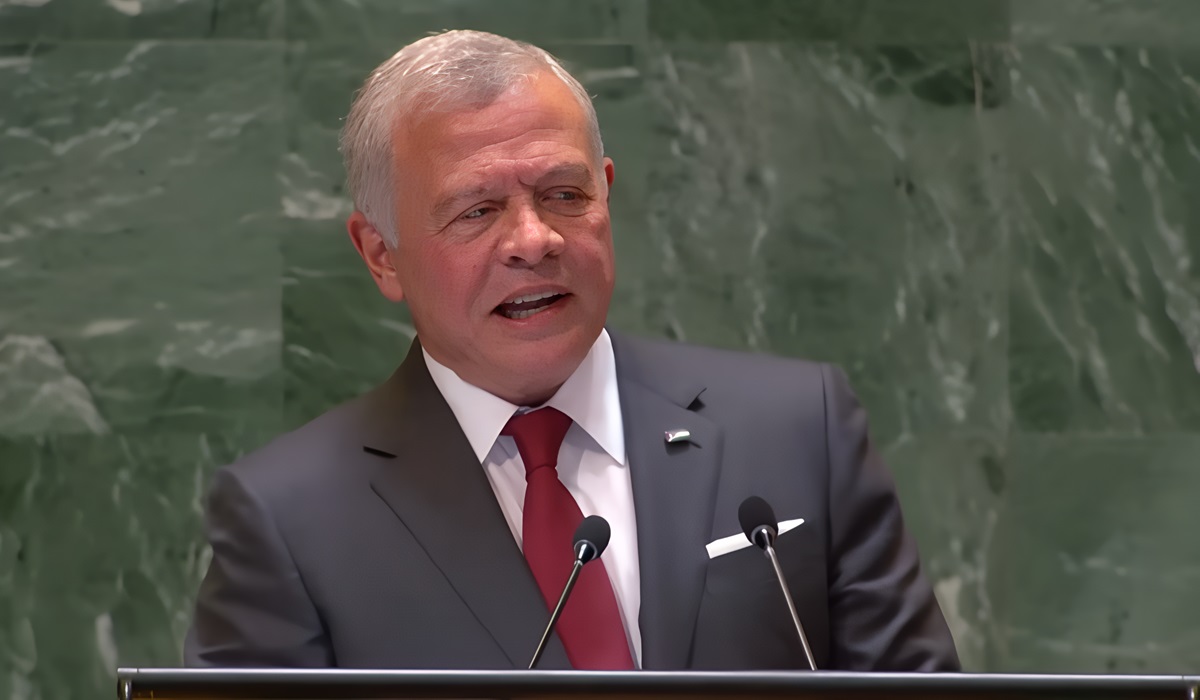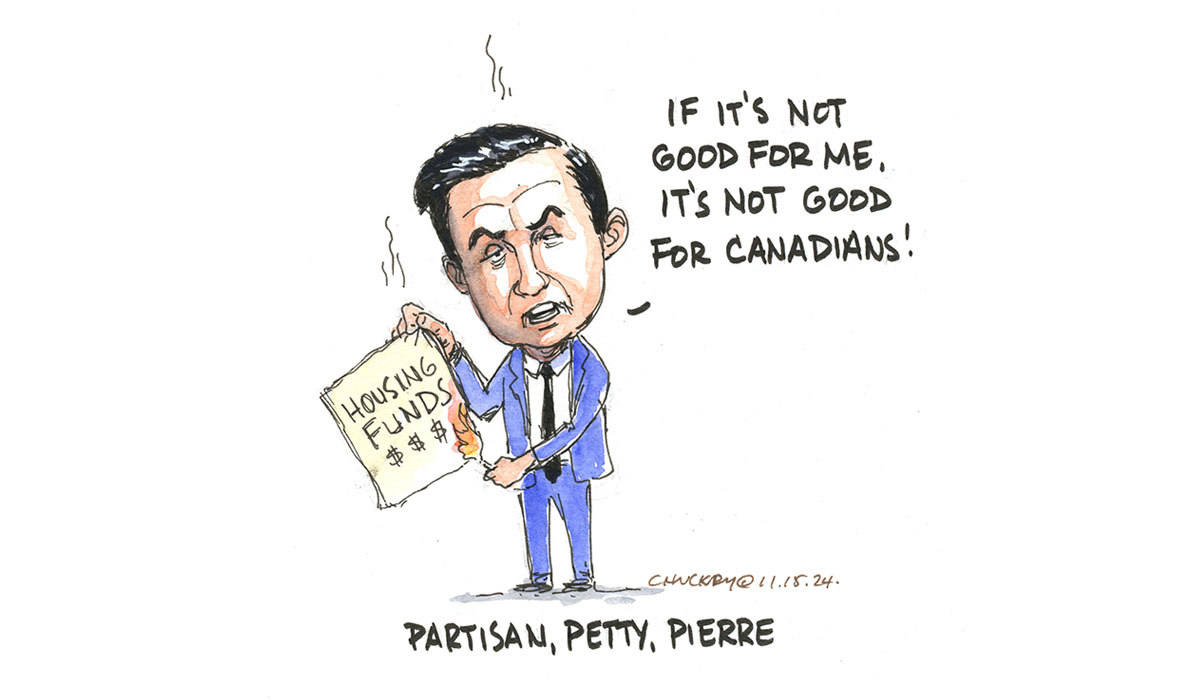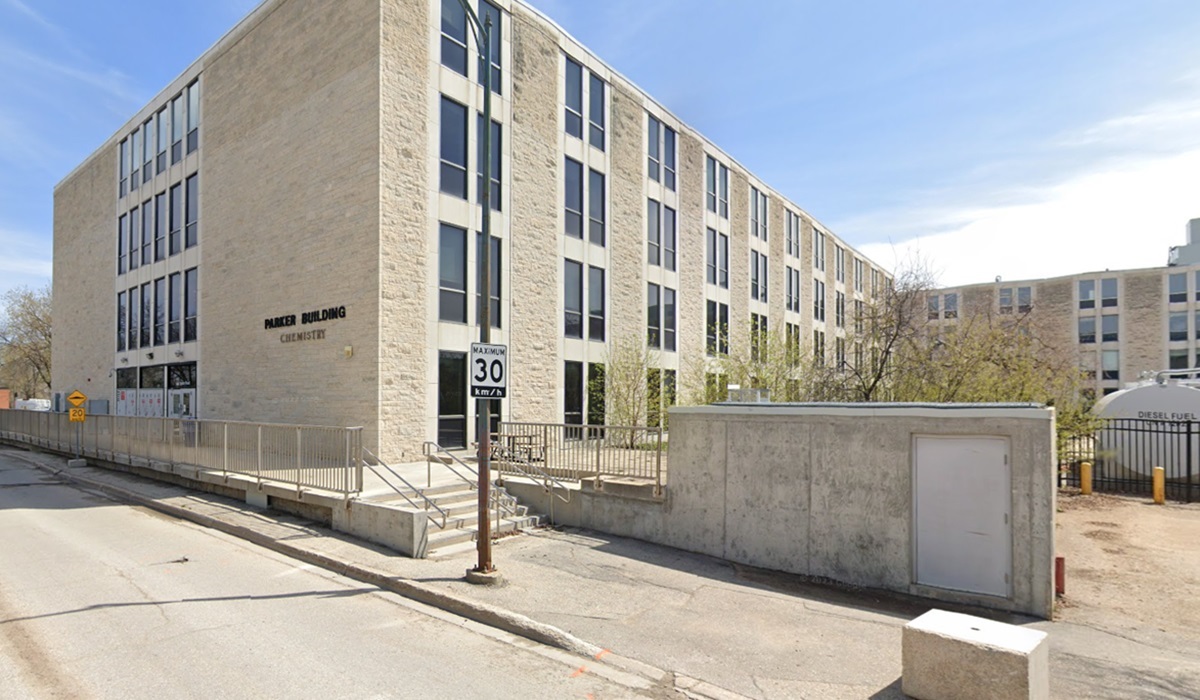Winnipeg Minority Candidates Are Being Excluded From Future Mayoral Debates
- TDS News
- Breaking News
- Elections
- Trending
- Western Canada
- October 5, 2022
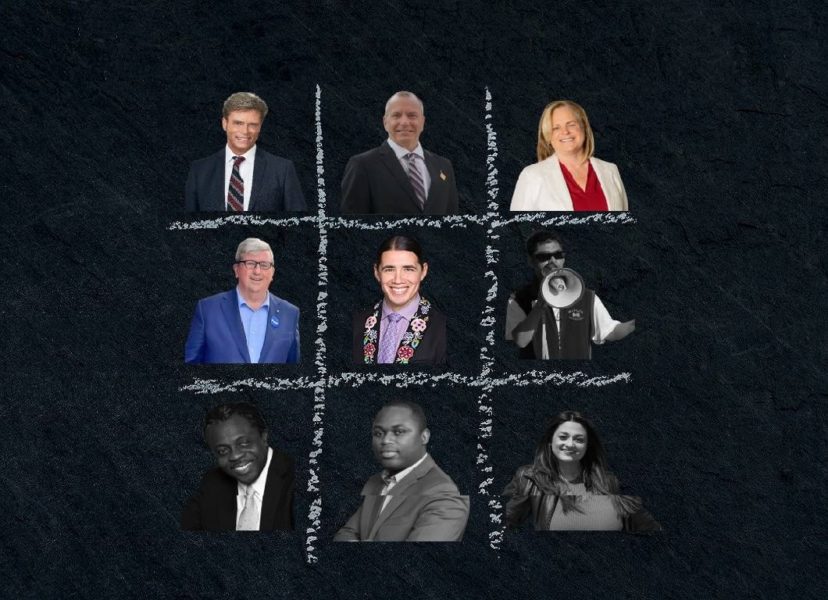
Organizations are using a poll taken by 600 people to determine who makes it into future debates, resulting in the voices of minority candidates being silenced.
The hardest thing a person can do is to put their name on a ballot wanting to represent their community. Along, with that courage, running in an election comes with multiple financial, emotional and physical challenges. Candidates should not be subjected to unconscious biases or perceived selective biases by the media or organizations when selecting representations for debates.
Since the start of Winnipeg’s Mayoral election, many polls have been commissioned to convey a sample size of the public’s opinion, which makes it more absurd the data is being used to make decisions that affect the majority. We are all aware, pollings have historical data to confirm its many inaccuracies and they never truly represent the community in its totality. Winnipeg, a city that is one of the most multicultural places to live in Canada, and seeing the minority Mayoral candidates and other people of colour being excluded from the major future debates based on sample-sized data by organizers, is troubling.
In the case of the CBC, only candidates polling within 10% support will make it to the televised debate. The problem with this is that the polling represented 0.0007% of Winnipeg. This means many ethnic and minority communities, which comprise a large population of the city, will not have their voices heard or represented based on a poll.
“To leave out six of the total candidates is exclusionary and further marginalizes voices desperately needed in this race. To do this just to make good TV is an abysmal standard. I expect CBC to adhere to their mandate.” Said Rana Bokhari, Mayoral Candidate in a statement posted on her website
“I believe we all have something to contribute, and that’s why we put our name forward, and especially for someone like myself who has made meaningful contributions to our city this was wrong to do.” Said Don Woodstock, Mayoral Candidate
In the latest debate hosted on October 3 by the Jewish Federation of Winnipeg, all minority candidates, including Rick Shone was again excluded from the debate, leaving the only indigenous candidate, Robert Falcon Ouellette. He was joined by candidates Glen Murray, Kevin Klein, Scott Gillingham, Shaun Loney and Jenny Motkalkuk.
The Daily Scrum News reached out to the Jewish Federation of Winnipeg for comments to understand their selection process and asked;
– Who made that decision and why?
– What metrics did you use to decide on candidates?
“Unfortunately, due to the high number of candidates running in this year’s election, we were unable to ask every candidate to participate. The candidates we asked were the most popular candidates according to recent polls.” Said Adam Levy, Communications and Public Relations Director of the Jewish Federation of Winnipeg
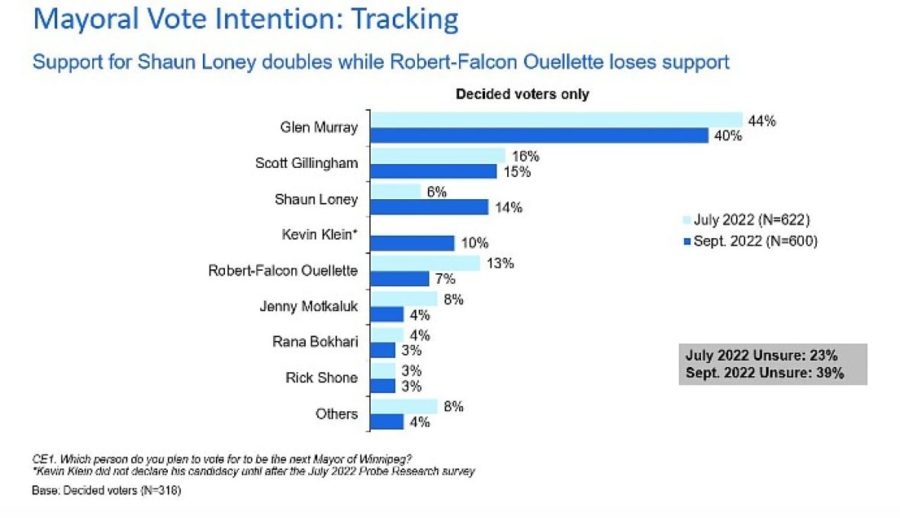
The problem with that statement is that if the organization had only asked the popular candidates based on polling as he alluded to, Jenny Motkalkuk by his statement should not have been included in the debate. She was polling at 4%, and South Asian candidate Rana Bokhari and Rick Shone were polling at 3%. In Motkalkuk’s case, she was well below the 10% cutoff instituted by CBC.
Corporations such as the CBC and the Jewish Federation of Winnipeg have missed an opportunity to host a debate representing everyone in the community. Of course, the decision-makers do not speak or represent the opinions of everyone within the media or the Jewish community.
Large candidate fields can be challenging to navigate; however, excluding minorities and people based on a poll taken by 600 people out of a population of roughly 833,000 is disheartening.
When people of colour tune into these debates and see no representation, we wonder if these organizations are aware of the perception of unconceived bias or selective bias. It will be telling to see what other organizations and debate organizers willingly choose to omit candidates based on the interpretation of a particular poll. A poll that does not reflect the community in its totality, to the detriment of minority candidates.


